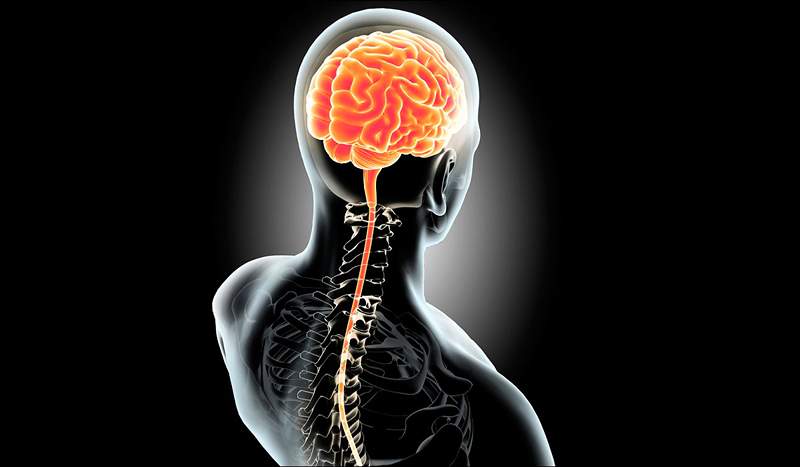We listen to what we want to hear

- 4661
- 365
- Herbert Ritchie
We listen to what we want to hear and not the opposite of it, as some studies in this area have demonstrated.
Generally, people prefer to hear what they want because They want their opinions to be validated, instead of listening to a different truth from the one they have.
But, this could have a scientific explanation, then, research in the field of neuroscience has exposed that the cerebral cortex usually makes predictions about what is going to happen.
When this happens, neurons in charge of sensory processing only encode the difference between true reality and the predictions we make.
Content
Toggle- Why do we listen to what we want to hear?
- Predictive coding theory
- Importance for daily life
- Bibliography
Why do we listen to what we want to hear?
Why do we listen to what we want to hear and we don't open so easily to other truths?
According to a study in the field of neurosciences, carried out in Dresden, by Professor Katharina von Kriegstein, apparently, it is not only about something that occurs in the cerebral cortex, but also the auditory route, which makes a representation of the sounds based on the expectations that are available.
To carry out the study, the research team resorted to the use of functional magnetic resonance images (FMRI), in order to measure brain responses in nineteen participants, while they listened to several sound sequences.
The participants were asked to identify which of the sounds of the sequence left the rule of others, or deviated.
However, the expectations of the participants were manipulated to expect the sound that was diverted in some sequences positions.
This is how scientists were able to examine the answers caused by the sounds diverted in the two main centers of the subcortical route responsible for the auditory processing, namely the lower colicle and the medial geniculate body.
Although the participants were able to recognize the sound deviated more quickly when it was placed in positions where they did not expect, the subcortical nuclei encoded the sounds only when they were placed in unbeliented positions.
Predictive coding theory
To the above it is known as predictive coding, a theory of sensory processing that allows perception to be described as a hypothesis test process.
According to predictive coding, it is assumed that The brain constantly generates predictions about how something will sound, how will you see, how the world will work or how the world will work at the next moment.
In this process, it is the neurons that are responsible for processing the senses and saving resources by representing only the differences between predictions and the real world as it is.
According to another of the participants in the aforementioned research, the DR. Alejandro Tabas, subjective beliefs about the physical world play a decisive role in the way we perceive reality.
The doctor. Tabas argues that: "Decades of research in neuroscience had already shown that the cerebral cortex, the part of the brain that is more developed in humans and apes, scan the sensory world testing these beliefs against real sensory information".
So that, this process also involves the most preserved and primitive parts of the brain, which is demonstrated that Everything we perceive could be "contaminated" by subjective beliefs about the world.
With These studies open new paths so that neuroscientists continue to investigate sensory processing Towards subcortical routes.
It is likely that, the belief that subjectivity is properly human, and that the cerebral cortex is the main point of divergence between humans and other mammals, is what has led to not enough attention to the role played by subjective beliefs to subcortical sensory representations and why we listen to what we want to hear.
 Central Nervous System (CNS): Structure, Functions and Diseases
Central Nervous System (CNS): Structure, Functions and Diseases Importance for daily life
Having knowledge that we listen to what we want to hear is not only relevant to the general population, but also for science.
Well, We live in a daily life in which predictions are left over, So the study on deficiencies regarding how expectations are transmitted to the subcortical route could shed lights in the area of cognition.
For example, learning or dyslexia disorder are conditions that have already been related to an alteration in the responses of the subcortical auditory route, due to the difficulty presented to take advantage of stimuli in auditory perception.
If this type of research continues, new paths could be opened to explain why those who suffer from dyslexia have difficulties in speech perception. In addition, these investigations, why we listen only to what we want to listen, open paths to know the origin of other neuronal disorders associated with sensory processing.
Link between the choice of words and the extroverts
Bibliography
- Alejandro Tabas, Glad Mihai, Stefan Kiebel, Robert Trampel, Katharina von Kriegstein. Abstract rules drive adaptation in the subcortical sensory pathway . Elife, 2020; 9 DOI: 7554 / Elife.64501
- Blanche, e. Yo., & Reinoso, G. (2007). Literature review: sensory processing deficit in the spectrum of autism. Chilean Occupational Therapy Magazine, (7), AG-59.
- Bellefeuille, i. B. (2006). A disorder in sensory processing is often the cause of learning problems, behavior and motor coordination in children. BOL PEDIAT, 46, 200-203.
- Torres, r. M. R., & Fernández, P. F. (2004). Dyslexia, dysortography and dysgraph. Pyramid.
- « Harlow's experiment and maternal deprivation
- Chronic concern, what is and how to face it 5 recommendations »

